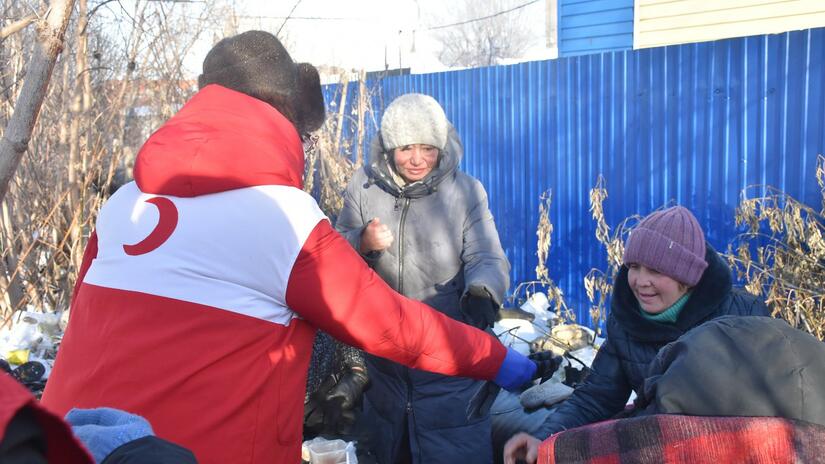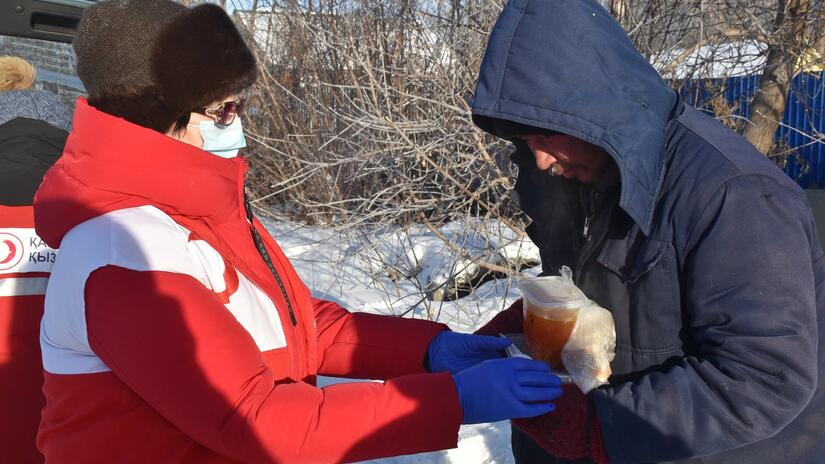In Kazakhstan, winter weather can be extremely harsh, with temperatures plummeting to -40 C at night. This presents a challenge for all people, but especially for some of the most vulnerable groups: homeless, lonely older people, people with disabilities and single parent households.
"My husband and our two sons have died and my relatives are living far away, therefore now I am all alone in this world,” one 81-year-old woman told a Red Crescent team. “I’m grateful to the Red Crescent volunteers for bringing me soup, buns and pilaf – I’ll eat it with pleasure and save some for tomorrow.”
Drivers and passengers who get stuck on the road may also find themselves in a difficult situation.
Whenever extreme cold hits, the Red Crescent of Kazakhstan is ready to support people in need thanks to a system the National Society developed that allows it to mobilise as soon as a severe cold wave is predicted.
Getting ahead of the cold waves
Through the activation of the Simplified Early Action Protocol for Cold Waves, the Red Crescent is receiving CHF 68,000 from the IFRC's Disaster Response Emergency Fund (IFRC-DREF). They money is used to fund anticipatory actions supporting 2,000 people in the worst-affected regions and reach a further 80,000 with awareness-raising activities.
The protocol was triggered by a cold wave on 11 December, when the national weather forecast service predicted temperatures to go below -40 degrees in the north of Kazakhstan.
"This simplified early action protocol allows us to support people surviving extreme cold in the most difficult conditions, and to do it quickly," said Lena Kistaubayeva, director of the Emergency Situations Department at the Red Crescent of Kazakhstan.
"Distributing warm clothes from prepositioned stocks and arranging hot meals for homeless people and older people living alone are the key activities at the moment,” she added. “We keep monitoring weather forecasts, so as to respond in a timely manner and address further needs in this and other target regions of the country, through our local branches."

Among those most at risk from cold snaps are homeless people, lonely older people, people with disabilities and single parent households.
Photo: Credit: Red Crescent of Kazakhstan & IFRC
Hot meals, clothes and blankets
Throughout the winter, Red Crescent teams have been helping homeless people reach warm shelters and provide them with hot meals and basic items such as winter clothes, shoes and blankets. Volunteers are also providing First Aid at warm-up shelters.
"Since I was a child, I have been spending most of my time on the street and taking care of myself,” said a 54-year-old homeless man. “I ended up with bad company and spent ten years in prison, but at least I had food and a bed there. Now I’m alone again and I don’t know where to go. Volunteers will take me to an accommodation centre and helpe me with the registration.”
IFRC is a lead in the Early Warnings For All Initiative, which will provide early warnings to people across the globe by 2027. Learn more.

